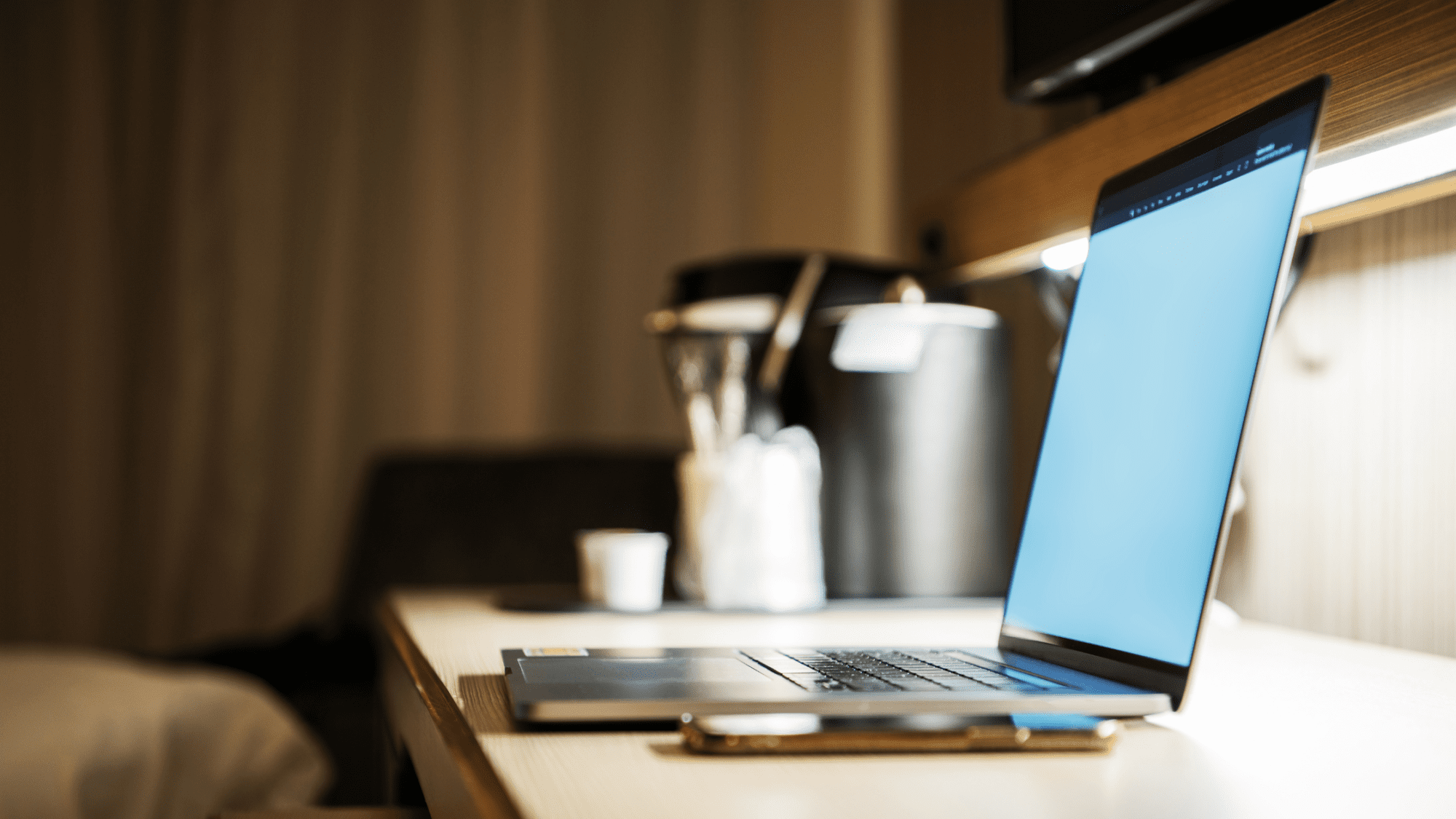
Most companies have slowly switched back to working onsite while others follow a hybrid work model. Despite this, about 98% of workers still express their desire to work remotely.
Flexibility is one of the best things working remotely can offer. It means you can take your job wherever you go, even in a hotel room!
But how do you stay in the zone when you’re in an unfamiliar space? Here are a few tips for working remotely in a hotel room.
Pick the Right Hotel
If you plan on working during your trip, the first thing you should consider is your hotel room. You want to be sure it offers the essential amenities you need to comfortably work.
It includes fast and free Wi-Fi, charging stations, room service for food delivery, and ergonomic spaces. It also helps to have nearby stores that allow printing and scanning or convenience stores for quick errand runs.
Noise may also be a problem for some remote workers. So, you want to pick a place with soundproof walls or fairly quiet hallways. This way, you can stay focused until the end of your shift.
Organize Your Temporary Space
One of the best tips for working remotely in a new space is to organize and set it up according to your original place. It creates the illusion that you’re working from home, allowing you to maintain your focus better.
Moreover, creating a separate area in the room for work can keep you from wanting to rest or go back to bed. As much as possible, choose a part of the room that offers the least distraction and allows you to feel the light.
Create a Routine
Consider creating a temporary routine to follow during your stay. Doing this not only makes you feel more comfortable but also promotes better concentration.
For example, take a five-minute break after the first 4 hours or have a meal before you start. With a routine, you can reduce the amount of distractions in between your working hours. So, you can finish smoothly while still allowing yourself to enjoy your hotel stay.
Set a Schedule
Come up with a schedule that you’re comfortable with while working in the hotel. This way, you can give yourself internal deadlines to follow, ensuring you finish your responsibilities within the day.
Timeboxing is a popular way to boost your productivity when following a schedule. At the same time, it teaches you to manage your day better over time.
Have Backup Options
You want to pick a hotel room with good Wi-Fi and lighting. Still, there’s no telling when something comes up at the hotel that causes you to lose access to these.
Because of this, you want to have backup options available. Make sure to bring your own Wi-Fi hotspot or find a cafe nearby that offers access without feeling too crowded.
Stay in the Loop with Tips for Working Remotely in a Hotel

You might know the West Loop for its unique and diverse cuisine. So, you’re sure to come across some popular names along the way.
But beyond the usual brands you catch at home, they showcase a whole new set of tastes to the table, from Greek to Asian influences. Here are a few Hotel Chicago West Loop recommendations to get you started on your food exploration.
Soju BBQ
Athena Restaurant
Giordano’s
Froth
Ricano’s Restaurant
Su Taqueria El Rey Del Taco
Church’s Chicken
Complete Your Stay with These Chicago West Loop Restaurants
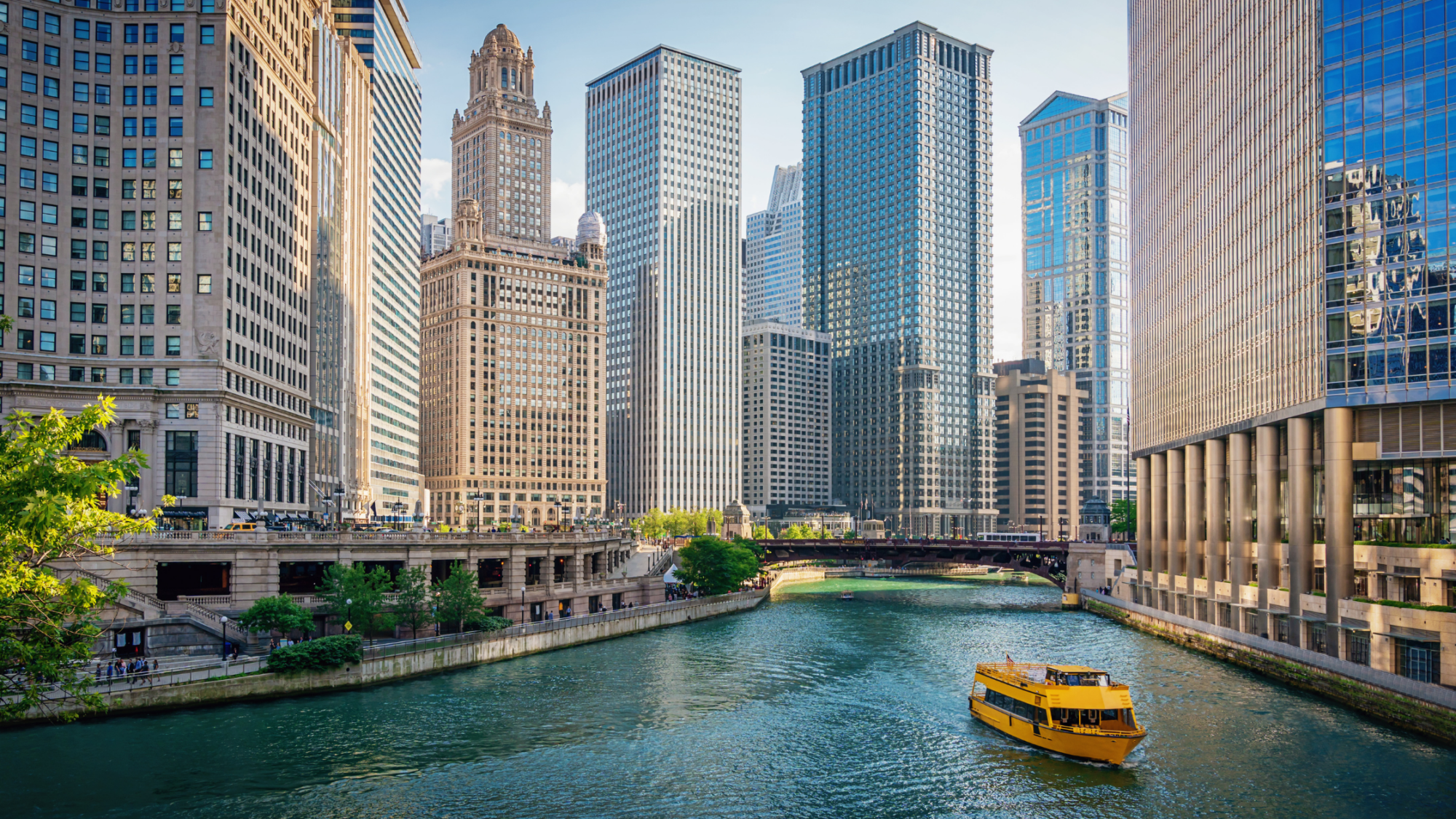
Lots of people visit Chicago for its vibrant and lively neighborhoods and fun cuisine. But aside from this, they also have lots of places that work for those looking for an adventure.
You can find places for simple fun activities to extreme sports, both on land and in the water. So, here’s a Hotel Chicago West Loop guide to what to see in Chicago for a whole day of excitement!
Go Kayaking at the Chicago Riverwalk
You can explore the city of Chicago from a whole new perspective when you do it through the water – and even better, it’s through kayaking! When you get to the Chicago Riverwalk, you can find Urban Kayaks for guided tours or kayak rentals if you want to go around on your own.
Here, you can paddle through the bridges, skyscrapers, parks, and other unique parts of the city you usually don’t notice from hotel windows and car rides. If you go around at night, you might even catch a great view of the lake’s fireworks show.
Climb Rocks at Maggie Daley Park
Rock climbing is a great sport if you want to have fun and get lots of exercise at once. Evidence suggests that it improves handgrip strength, lower limb pedaling power, vertical jump abilities, push-ups, pull-ups, sit-ups, and sit-and-reach results.
In Chicago, the Maggie Daley Park houses one of the biggest indoor climbing walls at about 40 feet high. You can choose between the beginner or advanced climb, depending on your skills. Moreover, you get a great place to see the Chicago skyline.
Zoom on Jet Skis at Lake Michigan
Go Higher Up at Skydeck Chicago
Boost Your Fitness at The 606
If you want to get active without the extremity, parks are a great place to start. At The 606, you can find a paved trail about 18 feet above the street.
Lots of people visit the trail for physical activities, like biking, rollerblading, running, or going for a casual walk around the area. Once you get back to your hotel room, you can consider following more tips to stay healthy throughout your trip.
Stroll on Wheels at Grant Park
Level Up Your Stay with What to See in Chicago for Adventurers
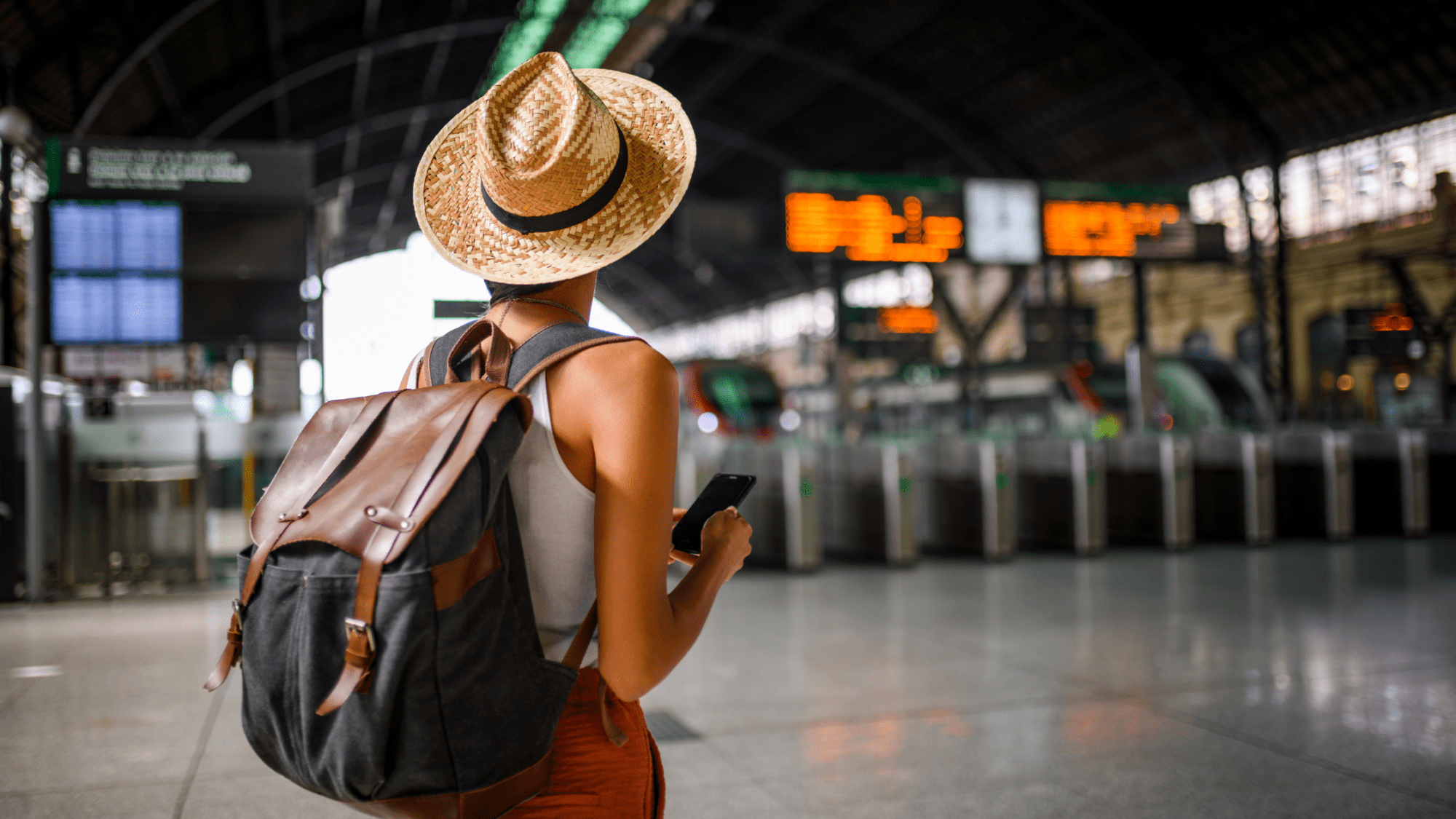
Traveling alone is a bigger step than it seems, especially when you’re visiting a place you’re not familiar with. Sure, it has its perks, but one thing you should prioritize among anything else is safety.
About 87% of travelers express they have safety concerns, according to the 2019 Global Rescue safety travel survey. Whether you’re part of them, you want to learn how to be a smart traveler.
To start, here’s a quick guide to solo travel safety.
Always Stay Connected
Some people travel alone to disconnect from their daily life. While it works for some, you want to stay connected with friends and family throughout your trip.
Note that you don’t have to be on a call with them all day. Instead, you can send them texts about your travel itinerary, current location, and the like. This way, they can make sure you’re doing alright.
Have an Emergency Plan
There’s no telling when an emergency could come up during your trip. Because of this, many recommend preparing an emergency plan for any unforeseen event.
It’s good to know where hospitals, police stations, and other similar facilities are. It also helps to learn a bit of the local language to communicate any urgent concerns or get help.
If you have an underlying medical condition, speak with your doctor before you leave to be extra sure you have their permission to travel on your own.
Keep Your Valuables Secure
One tip when traveling that most people overlook is to only bring what you need. As much as possible, you want to avoid taking any crucial documents or items with you unless it’s necessary, like a passport or your credit card.
Doing so helps you keep track of your items better and keep everything within your reach. The less you have, the easier it will be to double-check your items every now and then.
Get Travel Insurance
Choose a Destination Carefully
Take your time choosing a destination, especially if it’s somewhere you’ve never been. You want to be extra sure you travel to safe neighborhoods and routes and learn about areas to avoid.
Your destination doesn’t only refer to the city or country but also the places you visit and stay. Pick a reliable hotel that makes you feel comfortable and offers 24/7 customer service. This way, you can contact the staff for any immediate concerns.
Understand the Basics
- Navigation: Learn how to get around and the safest routes to take and stay in the area.
- Interacting with locals: Understand cultural differences and be wary of how you interact, whether through verbal or physical gestures.
- Simple phrases: Learn how to speak basic and important phrases to reduce the hindrances a language barrier could cause.
Think Twice Before Anything
Carelessness can lead to more trouble than you can imagine. So, it’s important to think twice before anything. It includes deciding on where to go, what to say, and the like.
You also want to be wary of your surroundings and pay close attention to what’s going on around you and how you feel about it. This way, you can easily steer clear of any potential situations that could ruin your trip.
Practice Solo Travel Safety to Ensure a Great Experience
Solo travel safety can make or break your experience. So, it’s crucial to learn how to be a smart traveler and be careful with how you navigate a new destination.
After all, exploring is about learning about the area rather than mindlessly going around. With these tips, you can get the most out of your trip while making the best memories!
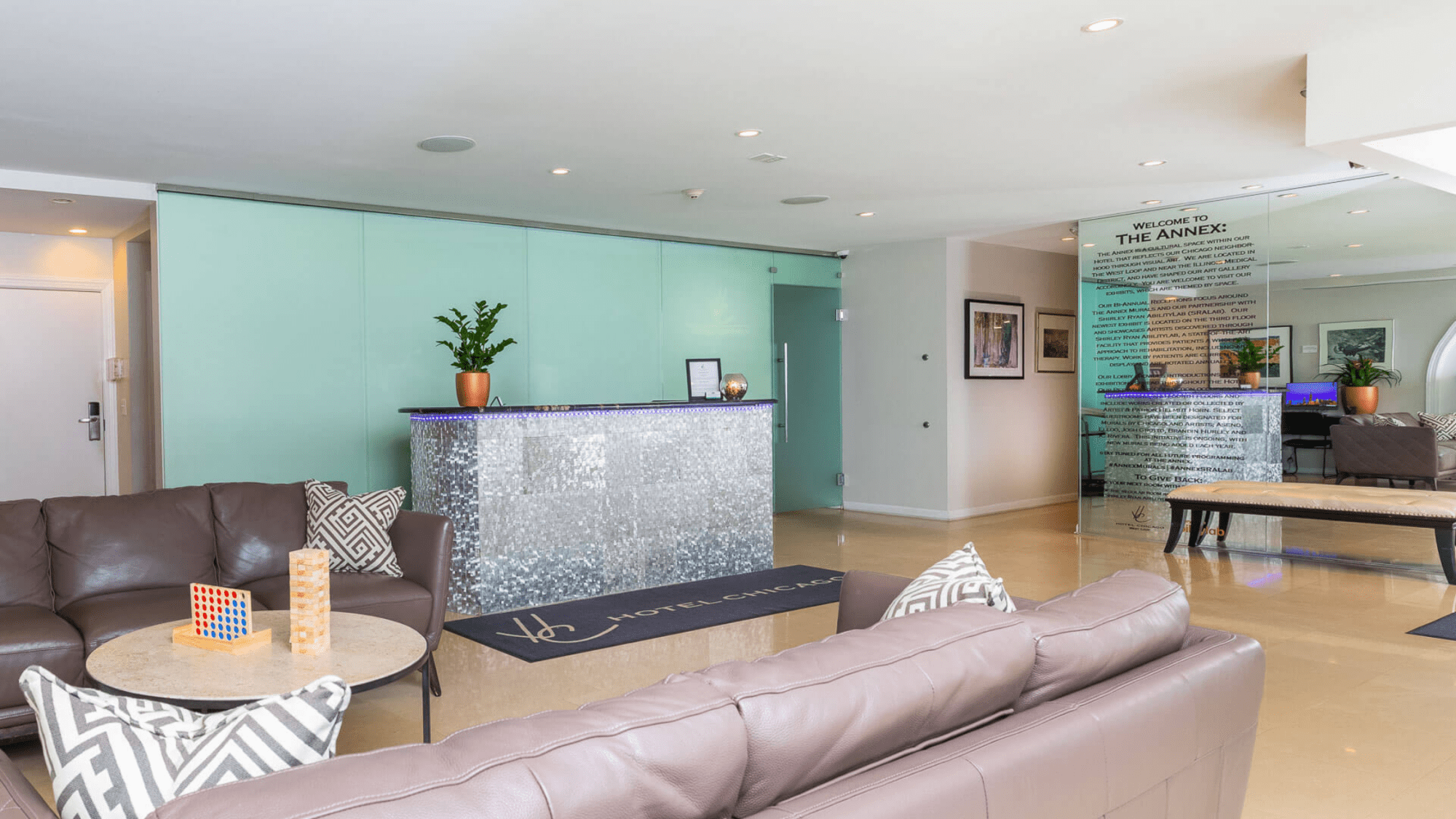
A day or two away from your busy daily life can mean a lot more when you pick a place to stay that offers exactly what you need. The question is, how do you know you’ve found the right hotel?
While some people have specific preferences, it helps to know what general hotel facilities to look out for. It gives you a head start and guides you in figuring out what more you want to see.
So, here’s a run-through of the hotel facilities that can improve your entire experience.
The Basic Hotel Facilities
Hotel facilities and amenities can determine how much you can enjoy your stay. Moreover, it determines how comfortable you feel throughout the entire trip away from home – even if it’s not the most luxurious of stays.
The best place to start looking is with the basics. A hotel that meets your basic needs is a good value for money. A survey finds that about 81% of travelers value a place that’s clean and well-kept. But beyond this, you want it to include the following:
- Convenient Amenities: These refer to items and services that make the stay convenient, such as a phone, safe, hair dryer, storage, and the like.
- Comfort Boosters: These focus on keeping the stay extra comfortable, including air conditioning, blackout curtains, toiletries, in-room entertainment, and more.
- Fast, Free Wi-Fi: Internet access is a crucial hotel amenity for many. Statistics show that about 89% of hotel guests value this feature.
- Charging Stations: Likewise, you will likely travel with gadgets, so it’s best to have accessible charging stations and power outlets in different locations.
Additional Hotel Amenities to Boost Experience
Next to the basics, what you look for next can vary according to your needs. Usually, these determine how much you find value in your stay beyond the initial stay.
The following are a few that most hotel guests usually look for.
Inclusivity Features
Pet-Friendly Amenities
Digital Experiences
Hobby or Leisure-Centered Facilities
Enhance Your Stay with the Best Hotel Facilities

In recent years, more people have been looking to travel with a pet. While the demand grows, so does the access to pet-friendly spots.
A survey by Wag! reveals that approximately 94% of travelers would give up at least one amenity for pet-friendliness at accommodations. Even so, there are other things to consider before you settle with your choice.
Here are a few tips to help you find the ideal hotel when you travel with a pet.
Go Through Reviews
Figuring out how to travel with a pet is one thing, but finding spaces without restrictions is another. So, you want to be sure you’re looking in the right place right off the bat.
A great way to start is by going through hotel reviews. Not only does it give you an idea of their service and quality, but it also lets you read through the experiences of fellow pet owners.
Moreover, you can go through forums and ask questions about the accommodation yourself or get references from people you personally know.
Review the Pet Policy
Even if a hotel is pet-friendly, they will have specific policies. These vary for each of them, so take your time to go through them.
Start by checking out the details on the sites. But to be extra sure, contact the hotel to clarify further details.
Confirm the Fees
Fees play a big role in travel decisions, whether you’re on a tight budget or free to spend however much you want. Because of this, one of the first questions you should have is “how much does it cost to travel with a pet?”
When picking a hotel, confirm the cost of the pet fees and whether it’s a flat rate or charged per night. With this, you can prepare the budget and determine if the cost is worth it, especially after considering other factors.
Look Into Potential Restrictions
Beyond policies, pet-friendly hotels may come with different kinds of limits. It includes anything related to your furry friend or where you can tag them along.
For instance, there may be a weight limit for each pet or all of them combined. On the other hand, some places can only accept specific types of pets.
You should also note which parts of the hotel you can bring them. Generally, the dining and pool areas would be off-limits, but other places may have more restrictions.
Check for Pet-Friendly Amenities
No matter how much you want to travel with a pet, you should consider whether they will enjoy their stay as much as you do. So, it helps to look into pet-friendly hotel amenities beyond outdoor areas.
A few you can look out for include pet restaurants, parks, shops, and bars. This way, your pet can bond with others and stay comfortable throughout the trip.
In Closing: Tips for When You Travel With a Pet
A pet-friendly hotel goes beyond allowing your furry friend to be with you in your room. You want to be sure it offers enough amenities and spaces for you and your pet to have fun together.
So, look into a place that focuses on making the experience a memorable one for everyone. This way, you can ensure you get the most out of your travel with a pet!

Tips to Enjoying stress-free travels
Plan your trip
Secure your tickets beforehand
If you’re travelling by plane, ferry, or train, it will do you well to secure tickets beforehand. Buying tickets ahead of time ensures that you will have a slot in the transportation you choose. Doing this also lets you avoid that frustration of having planned every detail of your trip, only for it to be cancelled because flights are fully booked.
Also, make sure to have printed copies of your tickets with you. Don’t rely on digital or electronic copies you can store on your smartphone, tablet, or laptop. Electronic devices could malfunction at any time, making electronic copies unreliable. It’s best to have printed copies.
Invest in an organized packing system
Next, having an organized packing system allows you to bring everything you need with you at low to no risk of losing or leaving anything behind. It’s not that difficult to do this—all you need is to pack your things according to their use and then placing them in the same areas of your backpack or luggage so that you won’t forget where you placed them. You can also attach labels so that it’s easier for you to access what you need when you need them.
If you can, buy packing cubes so that you can store your items separately inside your luggage. This will allow you to organize clothes, bottoms, socks, and other things easier. Buying packing cubes of different colors makes organizing your things easier, even if you’re always moving from one city to the next.
Memorize your passport number
Bring a fanny pack for important things
Wearing a fanny pack allows you to carry important things like your smartphone, wallet, identification cards, passport, and others with you at all times. With a small bag strapped to your waist or across your body, you won’t have to bring bigger backpacks with you at all times, especially if all you plan to do is go out of your hotel or resort room to buy something to eat or drink.
What’s more, airports consider fanny packs as clothing articles, not luggage. This allows you to use it as an extra pack for small things that should be kept within arm’s reach. Using this allows you to avoid standing up during flights to get things from your backpack in the overhead bin.
Stay hydrated
Bring snacks with you
Get travel insurance
Enjoy waiting times
Enjoy a Stress-Free trip when you stay in Hotel Chicago West Loop
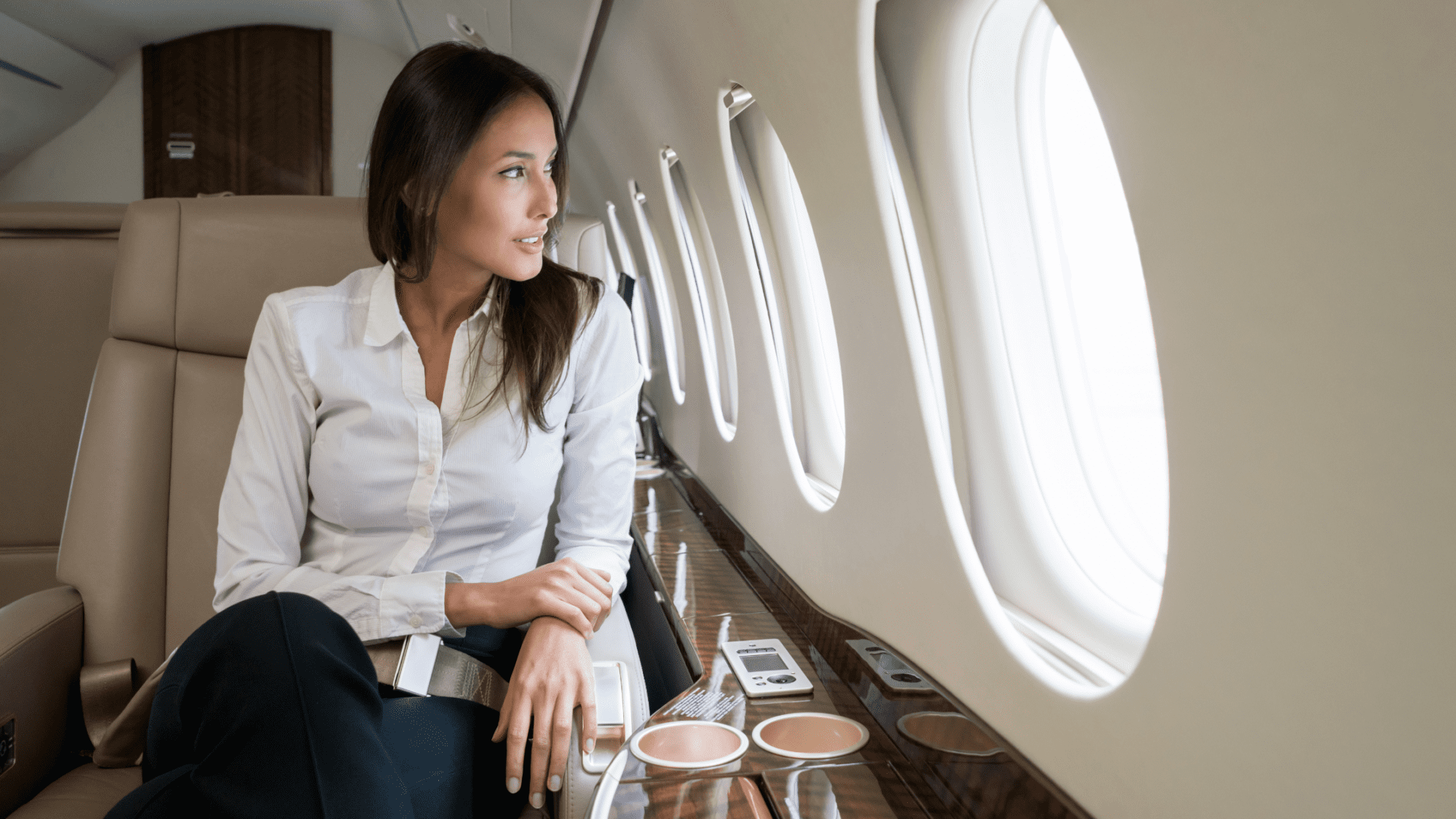
We all know staying fit on business trips can be a struggle. The stats show only 40% of business travelers keep up their usual health routines. Between hectic schedules in unfamiliar places, fitness often falls by the wayside.
The good news? With some smart planning and tools, getting your workout fix on a work trip is doable. Small adjustments let you stick to regular exercise and diet no matter where business takes you. Don’t let travel completely sabotage your fitness regimen.
Stay consistent on the road and keep your routine in check. We’ve got your tips for that in this article.
Utilize Hotel Gyms for Convenience
- Scope out the gym equipment and amenities before booking your stay whenever possible. Most have basic cardio and strength machines, but some may have extra gear or classes that better meet your needs.
- Even just 15-20 minutes of treadmill running or lifting weights maintains momentum. This prevents the gradual fitness decline over longer business trips from too much sitting and irregular schedules.
- Ask the front desk about the gym hours- some open earlier/close later to accommodate busy travelers getting workouts in before/after obligations. Stop by once checked in to get your bearings.
- Travel days themselves can be suitable times to utilize hotel fitness offerings, whether before flights or upon arrival. Sweating helps adjust to new time zones.
- Build workouts into your business trip itineraries just as you would meetings. Penciling in gym sessions ensures you follow through amid hectic days.
Pack Compact Equipment for In-Room Workouts
- Bands provide challenging strength and resistance training without bulky weights. Loop them around furniture or anchor them under your feet for makeshift pull exercises right in the room.
- Light dumbbells, particularly adjustable ones that can be collapsed down, offer weight training mobility. Toss them in a small gym bag alongside the bands.
- Jump ropes get hearts pumping for efficient cardio, either basic jumps or more advanced crossovers, doubles, etc. They take up little luggage space.
- Knock out sets of crunches, lunges, squats, and planks whenever possible too. Bodyweight moves require zero equipment for quick room sessions.
Maintain Healthy Eating Habits
- Research nearby restaurants or your hotel’s on-site eatery beforehand to pinpoint healthier choices. Seek out nutrient-dense whole foods- salads, grains, protein, and veggies.
- When possible, stick to your regular balanced diet template as much as possible. Travel days are when grab-and-go airport/station eats become tempting- prepare nutritious snacks like protein bars, nuts, fruits, and yogurt.
- Portion control is critical for restaurant meals, as is moderating alcohol intake which lowers inhibition around overindulging. Stay hydrated with unsweetened beverages as well between meals.
- Explore local grocery stores if you have kitchen access. Choosing wholesome ingredients gives you control to replicate go-to meals. Revisit comfort foods your first night before shifting focus.
- Wake up with enough time for hotel breakfasts over fast food. Seek veggie-packed options like spinach omelets and fruit that provide lasting energy during conference marathons.
Try On-Demand Workouts
- Download exercise apps with vast libraries of on-demand training content, from 10-minute HIIT to 30-minute boot camps or yoga sessions.
- Check if your gym or trainer from home offers virtual session options to remotely guide you through workouts during extended stays. Log in anywhere.
- On-demand programs adapt to space limitations facing business travelers stuck in guest rooms. Effective no-equipment programs maximize resistance bands, bodyweight moves, and cardio bursts.
- Streaming solves boredom pains from too much idle time as well. Mix up cardio, strength training, and stretching sessions to hit all fitness bases while traveling.
Incorporate Walking
- Substitute ride shares and taxis with walking routes for short hotel, office, and dining commutes under a mile or two. Racks up daily step counts fast.
- Stretch the legs and counter hours of stillness from flights or conferences by wandering new neighborhoods to grab coffee/meals instead of ordering room service.
- Schedule walking meetings when coordinating with colleagues also on site. Knock out to-dos while getting fresh air and movement simultaneously.
- Invest in supportive walking shoes specifically for work travel versus off-duty sneakers to keep energy up all day on feet hustling between obligations.
- Download audio tours or interactive landmark apps to indulge tourist curiosities on long walkabouts, transforming “getting lost” into sightseeing adventures.
Adjust Your Routine Realistically
- Move daily with a mix of cardio, strength, and flexibility. Don’t get hung up on missing your usual 5-mile trail run but rather substitute with hotel stair climbing intervals.
- Remember bodyweight training adapts anywhere when lacking your full home gym. Mix up push-ups, air squats, and planks which require zero equipment while delivering results.
- View modified maintenance programming abroad as embracing flexibility. This prevents overstressing when conditions are suboptimal. Stick to fundamentals over new fitness quests.
Make Use of Downtime
- Knock out quad burners or ab blasters while enjoying that first coffee rather than scrolling emails. Gets your metabolic jumpstart going.
- Battle midday energy lulls by using lunch breaks for super short walks to stimulate circulation as a refresher before afternoon meetings.
- Need an early evening digestif? Prance up and down stairwells to get steps in post-dinner before getting back to your room.
- Treat downtime as perfect moments for burst training, however brief. Beats mindless snacking or Netflix crashes when fighting boredom.
Stick to Sleep Fundamentals
- Strategically avoid sleeping entire lengthy flights if arriving during daylight hours- nap only 1-2 hours max on over 4-hour journeys to start acclimating new circadian rhythms.
- Request darker, quieter rooms away from elevators/ice machines, and pack earplugs and sleep masks to dull potential disturbances from unfamiliar settings.
- Abstain from large liquid hydration too close to bed to avoid bathroom interruptions. Shift to herbal decaf teas at night. Melatonin supplements can ease falling asleep quicker too.
- Set multiple failsafe wake-up alarms staggered every 15 minutes including as a last resort reliable morning calls you arrange at check-in. This safeguards against sleeping through while exhausted.
- When battling jet lag spikes, opt for mid-afternoon 20-30-minute power naps to temporarily boost energy over strong coffee. Caffeine too late worsens insomnia.
Responsible Relaxation and Responsible Results
The bottom line is maintaining health and fitness on work trips is very doable- it just takes a bit of planning. Intentional movement through bodyweight workouts, hotel gym sessions, walking
meetings, and smart nutrition keeps you feeling energetic and focused. You’ll return home still feeling strong in your routine.
If Chicago’s your next business destination, Hotel Chicago West Loop deserves a lookup. Our fitness center, city bike shares, and proximity to scenic riverwalks check the main boxes. Plus the surrounding West Loop area bursts with healthy grub spots, trails, and top-notch gyms to tap into.
So book your next Chicago stay at Hotel Chicago West Loop for a fitness-friendly experience. Our awesome amenities and location set you up for success in sticking to your routine, no matter how packed your work agenda gets. Check out the site to claim your room and hit the ground running.
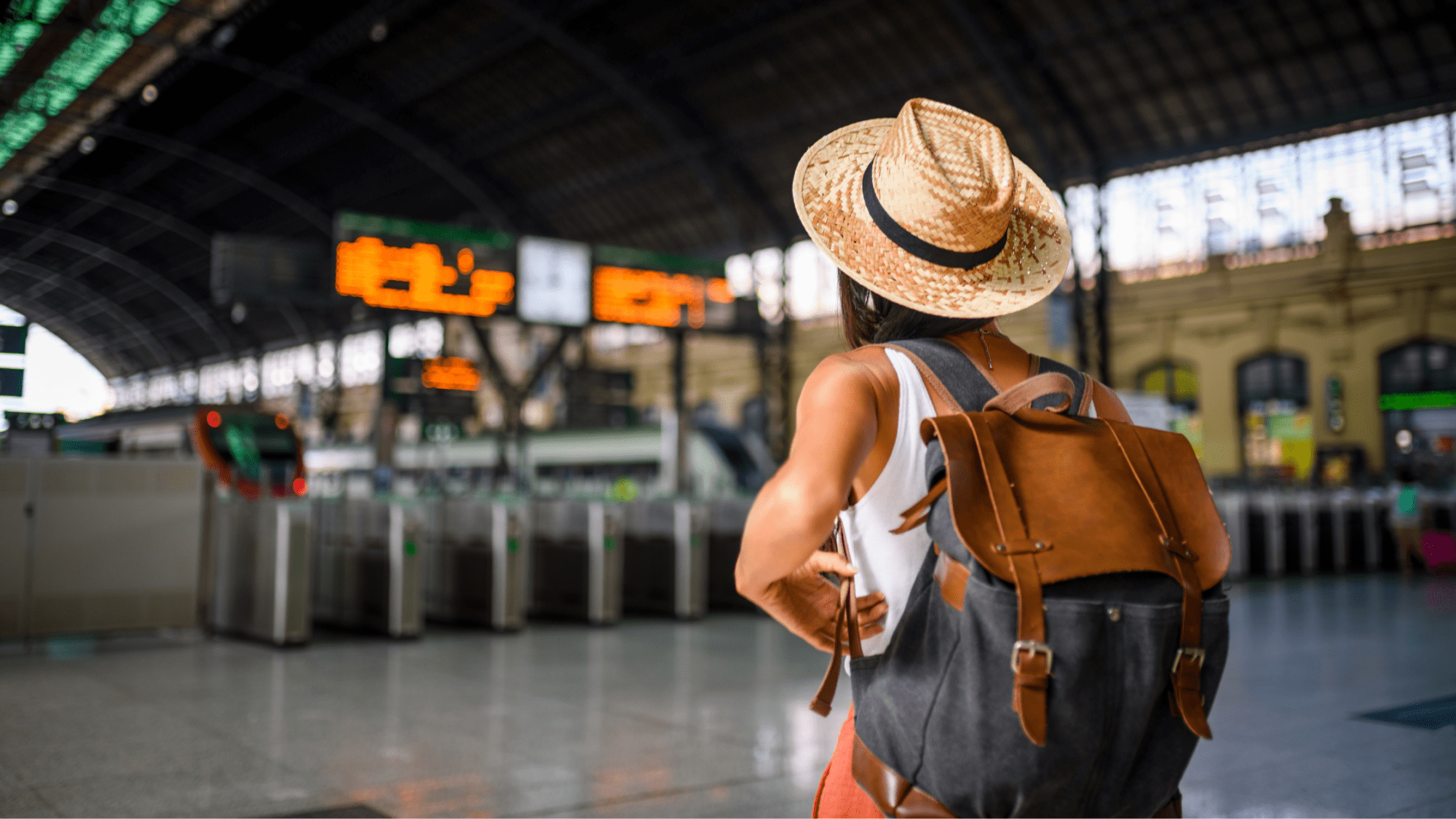
Solo travelers take multiple trips annually, making up over 11% of all travelers. Staying safe should be a top priority for every solo traveler. After all, around 45% of women and 20% of men report feeling unsafe or vulnerable when traveling alone.
The good news is there are practical steps you can take to minimize risks from the start. This includes securing your accommodation, avoiding dangerous areas, protecting your belongings, and remaining alert.
Apply these solo travel safety tips for extra assurance so you can fully embrace new adventures with confidence.
Securing Your Hotel Room
- Upon check-in, thoroughly inspect all locks, latches, deadbolts, and adjoining room access points. Engage every security mechanism, using provided room blockers if needed.
- Only open your door after verifying identities. If the hotel you booked is arousing your suspicion, use the peephole or ask for the employee’s name and ID slid under the door.
- Place the “Do Not Disturb” sign to prevent unneeded access. Inform housekeeping of your schedule.
- Check windows as well– ensure they lock, close curtains/blinds at night, and avoid rooms on the ground level.
- Request a room location near the elevator, lobby, or areas with higher foot traffic.
- Check for any maintenance issues like faulty locks or lights immediately and ask to change rooms if problems can’t be resolved promptly.
Avoiding Dangerous Areas
- Research the area and hotel before booking. Seek locally well-known brands in safe neighborhoods rather than obscure options.
- Ask the front desk team for a hotel map highlighting busy spots. Have them mark any wings or floors known to be quieter with less foot traffic.
- Scope out the premises in daylight first. Make mental notes of dingy hallways, stairwells, alcoves, and other poorly lit spaces to avoid later.
- Have staff escort you at night or order room service rather than dining solo.
- Don’t let your guard down in seemingly populated areas either. Be wary of strangers attempting conversation in lobbies or lounges.
- If you feel unsafe, return to well-lit lobbies with surveillance cameras and alert hotel security immediately.
Protecting Your Belongings
- Use room or lobby safes to stow cash, cards, IDs, electronics, and spare keys whenever possible
- Carry only essentials like debit cards and cell phones during daily excursions
- Avoid flaunting expensive jewelry or clothing that attracts unwanted attention
- Lock-checked luggage with TSA-approved devices and kept tags discreet
- Back up travel documents like passports and medical cards to the cloud
- Keep hotel key cards on you but separate from your wallet for quick access
- Review credit card and travel insurance coverage for loss and theft events
Stay vigilant, but don’t let fear of “what ifs” weigh you down either. Relax knowing you’ve taken key steps to secure your physical goods.
Staying Alert
- Scope out lobby layouts and security desk locations in case you need urgent help
- Note emergency exits and phones for reference even in routine activities
- Discreetly observe those sharing spaces like elevators, lounges, or saunas
- Avoid displaying your room number visibly or audibly to strangers
- Request to have your room keys and accounts unlabeled during check-in
- Walk with purpose and limit wandering on the property
- Stay in well-lit and well-populated sections of the hotel
- Keep phones charged and back up digital guides, maps apps for navigation
- Trust your instincts if someone makes you uncomfortable and report them
Additional Tips for Women Travelers
- Book rooms closer to lobby areas and avoid ground-floor rooms
- Be selective in sharing personal details – give only necessary info
- Research the laws and cultural norms of the area in advance
- Connect with other women travelers via hotel clubs or travel apps
- Learn basic self-defense techniques and moves before traveling
- Have hotel details/itinerary shared with emergency contacts
- Install safety apps with location tracking and emergency features
- Carry whistles/personal alarms to alert others if needed
- Report concerning interactions, comments, or behaviors to hotel staff
Tips for Senior Travelers
- Purchase comprehensive travel insurance covering health, medical, and evacuation needs
- Ensure regular medicines are well-supplied; carry prescriptions
- Have emergency medical/visa/passport info easily accessible
- Share detailed itineraries and hotel details with family/friends
- Carry cards with local doctor/clinic/pharmacy/police contact info
- Have cash for taxis/medical needs in case cards are blocked
- Check embassy sites for senior guidance and enrollment options
- Join group tours or expatriate clubs instead of going completely alone
- Carry a GPS-enabled mobile phone for emergency location services
- Use hotel services like breakfast alerts or wellness check-ins
Travel Solo, Not Alone
In summary, some planning and awareness make solo hotel travel far less risky. Securing your room, avoiding deserted areas, keeping belongings safe, and staying alert allows you to relax and enjoy yourself more, whether on a business or leisure trip.
While no one can guarantee safety, minimizing risks is possible. With some thoughtful precautions, you can address challenges if they arise while finding confidence in yourself and your decisions.
If you’re seeking a welcoming, art-inspired hotel with exceptional service, Hotel Chicago West Loop pairs a boutique atmosphere with security assurances. Here at Hotel Chicago West Loop, solo travelers feel at home with warm hospitality and attentive staff.
Visit our website to learn more about amenities, neighborhood perks, packages, and special offers perfect for solo travelers wanting a hotel experience that’s not just safe but fun.
Let us wrap up by saying that solo travel is rewarding when done thoughtfully. We hope these hotel safety tips allow you to embrace future adventures with an extra level of reassurance. Stay open-minded, stay alert, and stay curious.
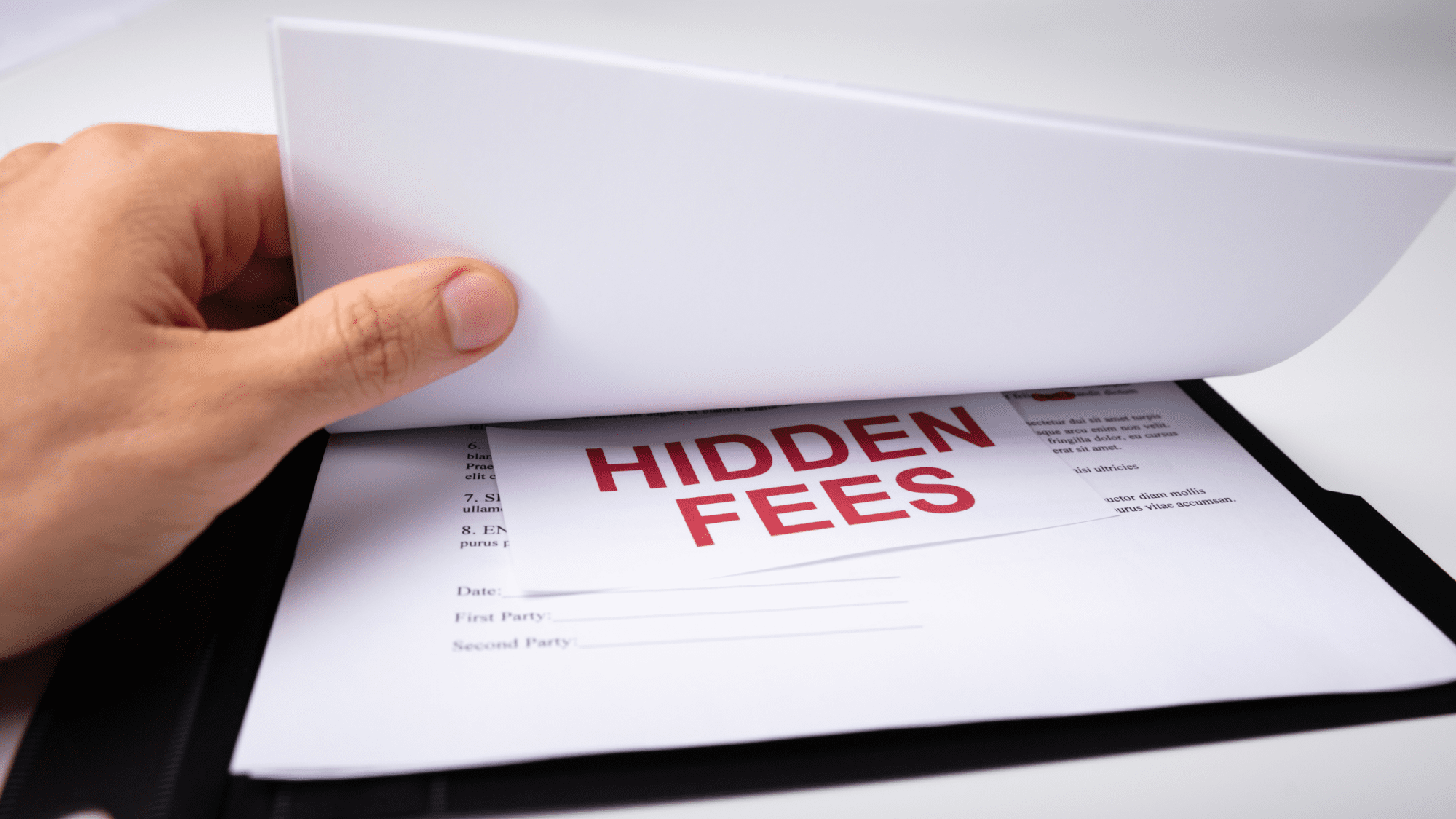
Hidden hotel fees continue to frustrate travelers, with a 2023 survey revealing that 95% encountered unexpected charges or misleading fees over the past year.
Here at Chicago West Loop, we get that hidden fees frustrate travelers. As a trusted stay spot, we’re upfront about full pricing from booking to checkout. In this quick guide, we’ll cover some sneaky hotel surcharges and offer tips to help guests spot and skip surprise charges. We want you to feel taken care of and know we’re here to answer questions anytime.
How to Spot Hidden Hotel Fees When Booking
Resort Fees
- Nearly impossible to avoid in tourist hotspots like Las Vegas or Hawaii
- Supposedly cover pool, beach chairs, wifi, and other amenities
- Ranging from $20-$50 per night, on top of room rates
- Always search for “resort fee” on hotel sites to determine if charged
Parking Fees
- Overnight parking at city hotels can cost $40-$60 daily
- Valet parking may add another $20+ per day
- Skip by choosing hotels with complimentary self-parking or hotels that have free parking spots nearby
Service & Cleaning Fees
- Extra housekeeping and property upkeep fees
- Generally $5-$20 added per day
- Read the rate listing carefully or call the hotel to ask about add-on service fees
Compare Total Price vs Nightly Rates
- Scan the final estimated total bill on booking sites
- This will reveal complete pricing with taxes, fees, and surcharges
- Avoid sticker shock at checkout by understanding full trip costs
Top Tips for Avoiding Hidden Hotel Fees
- Read the Fine Print Hotel Policies:
Don’t just glance at tempting nightly rates. Thoroughly scan terms and conditions, FAQs, and “what’s included” details, especially for resorts.
- Ask Detailed Pricing Questions Upfront
Directly inquire if taxes, parking, wifi, and amenities come included or at added costs. Leave no stone unturned by phone or email.
- Call the Hotel Directly Too
Speaking to an agent allows for clarifying any online gray areas around complete pricing. It also holds them accountable later for quoted rates.
Being Aware of Fees Upon Check-In
- WiFi Fees: Up to $15/day unless you specifically booked a room marked “wifi included”.
- Pool Access Fees: Kid pestering you to use the pool? Ensure it doesn’t come with a surprise $25/day pool admission charge.
- Fitness Center Fees: That hotel exercise room you were excited about may cost $10-15 per day to enter, unfortunately. Ask at check-in.
- Business Center Fees: Printing documents, scanning, and faxing services could all incur extra fees if using the hotel’s business center.
- Check-In/Out Fees: Yes, some hotels even charge $10 or more just to formally check-in/out at their front desk alongside your room fee itself.
What to Do If You Uncover Hidden Fees
- Inquire at the Front Desk: Politely ask staff to talk through the fees you didn’t anticipate from initial pricing quotes. Don’t get immediately hostile.
- Calmly Express Dissatisfaction: Explain your frustration around the lack of rate transparency, but avoid aggression. See if they’ll offer goodwill discounts for the misunderstanding.
- Attempt Courteous Fee Negotiation: For group travelers on longer stays, cordially negotiate the removal of the most extreme fees by speaking with the manager. But accept base taxes.
- Refuse Payment on Undisclosed Charges: Reject outright paying for fees that the hotel or booking sites never disclosed during the reservation process, or on their website.
- Involve Your Credit Card Company: Regulations like the Fair Credit Billing Act give travelers the power to dispute shady charges even after checkout. You can challenge extra fees that hotels sneak in outside room rate deals made during booking. But having documents ready is key, you need proof those fees weren’t part of the upfront pricing agreed on.
Reporting Hotels for Hidden Fees
- Better Business Bureau Complaint: File a formal grievance with the BBB outlining the hotel’s misleading pricing practices and unresponsive customer service. Added public scrutiny prods quick reviews.
- FTC Complaint for “Drip Pricing”: Report hotels to the Federal Trade Commission for suspicious “drip pricing” tactics, excluding required fees until final checkout.
- Small Claims Court Filing: For excessive hidden fees in the hundreds, travelers can represent themselves in small claims court with documented proof. The hassle motivates hotels to settle and refund.
The Checkout on Hidden Hotel Fees
While hidden hotel fees certainly present an annoyance for travelers, by identifying misleading charges promptly and disputing them vigorously, guests can manage the damage. And over time as more of us push back against opaque resort fees and deceptive surcharges, the less hotels will risk concealing them.
By demanding upfront rate transparency, doing comprehensive booking research, and directly questioning hotels on all fees, we travelers can minimize unpleasant surprises.
And when issues still creep up, remember even top-ranked hotels sometimes make billing mistakes. At our own Hotel Chicago West Loop, we aim for exceptional service and full pricing clarity from day one. But should oversights happen, trust our knowledgeable staff is here to promptly correct and make things right.
We hope these tips equip you to approach hotel bookings with confidence. Safe travels, and we’d be delighted to welcome you for a top-rated Chicago experience at our corner of the West Loop! Check us out at hotelchicagowestloop.com for current deals.



